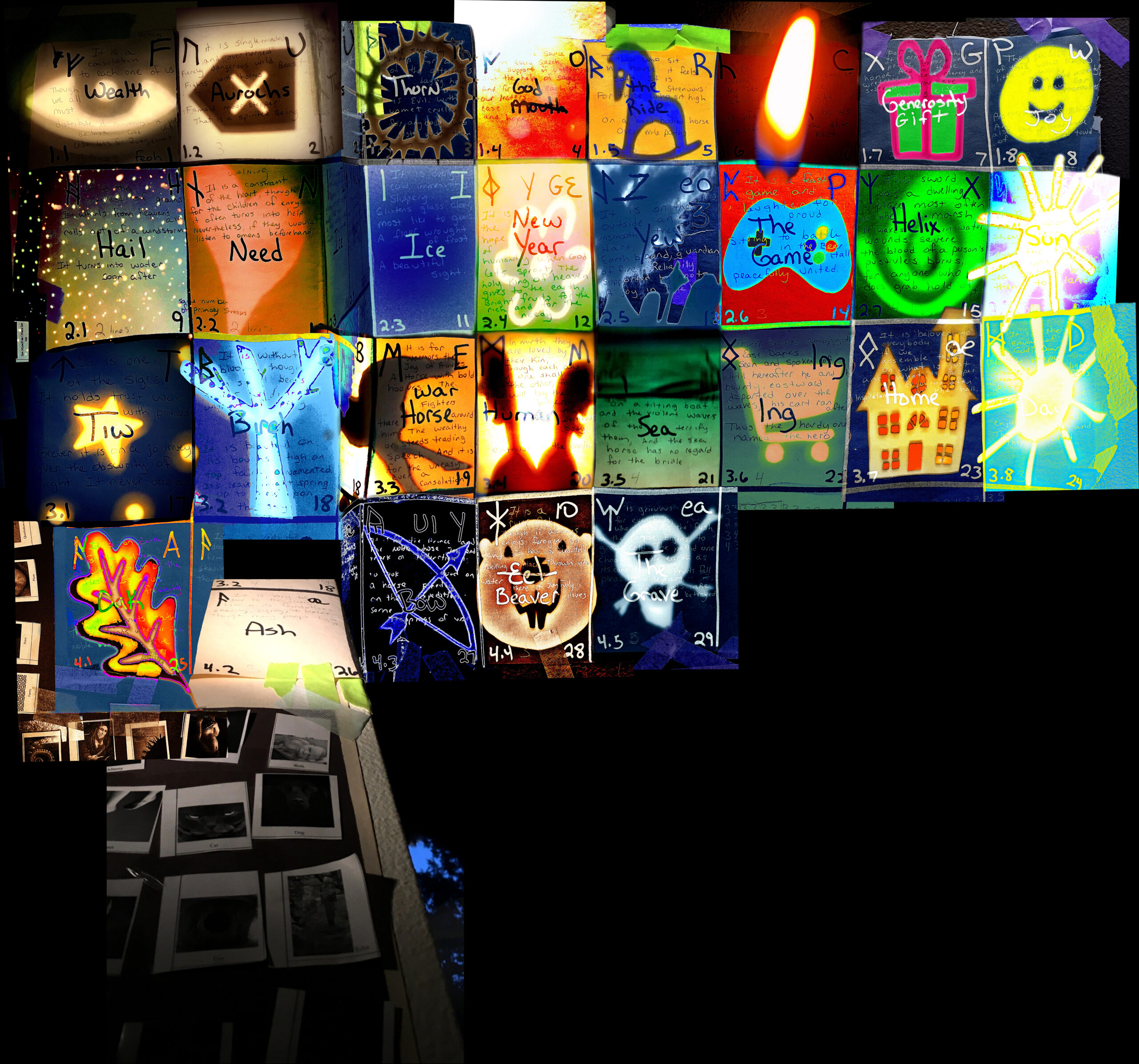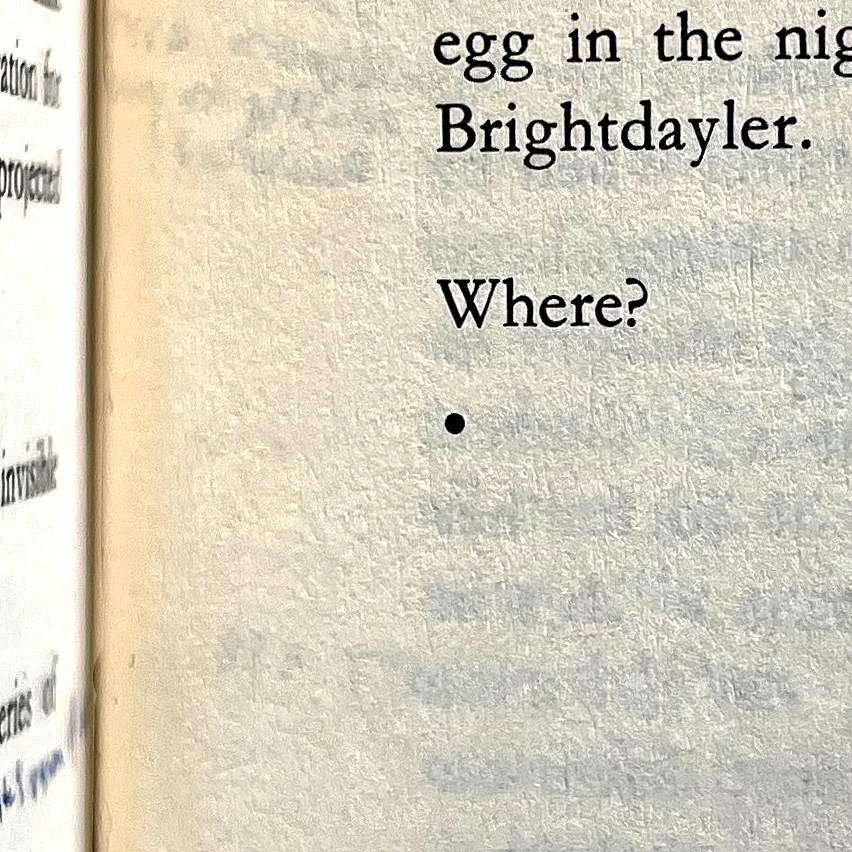
If you have just found this Alphabet Book, this is not the beginning, this is the middle. You are in the middle. One might say you have no choice in this, none of us do, the middle is all we have between past and future, it is our only contact with reality. If you must have beginnings and endings, and some of us insist on on such things, well, find them in the middle, find them right here in the now, the only now we have, where every forward motion recapitulates a past one, spiral like and self similar. The Old English Rune Poem knows this well. Look at the material: magical letters, powerful, speaking auguries of the future from the lips of the gods, curing and protecting whatever they are carved into, evoking magic wherever they go. You can’t just line this stuff up in any old order. There’s an arrangement to it, a fluidity of motion, meaning hidden in structure. A beginning, an ending, a thematic pairing of first and last, then of their adjacent runes and so on until you run out and come to an end, which is to say the middle: the mother of all endings and beginnings.
When I first read the Rune poem in grad school I could see mathematically that something is here, there’s a figure in this carpet, but I didn’t know what, and I didn’t stick around to find out. I studied chronosophy which touches everything, so my work took me into multiple disciplines simultaneously reading two pages apiece of seventeen books every night and I didn’t have time to linger in one puzzle in a small corner of the Middle Ages. I can’t solve every riddle. Still, the Rune Poem would haunt me between projects. This is how it stuck to me, right in my middle. When I hadn’t decided what to do next, I’d work on the Rune Poem. It was small and something I could abandon in the middle. I had before. I first translated it between the end of course work and before my dissertation, which had plenty to do with Dante and Joyce and Borges and nothing to do with runes. I turned to it again, though, I couldn’t help it, and looked for patterns before I pivoted into writing something else involving a blank period of time including a cardrive, a visit to a house of mourning, a leavetaking (wilderness). In the middle of this came an epiphany about the Rune Poem written deeply deep on a green oval leaf: Hray!
In the end, where this Rune Poem translation begins, which is to say the middle, I found the secret. Rune means secret and the one the Rune Poem whispers is a pattern so simple yet so nicely hidden (no-one saw: tell no-one) right in my face this whole time hitting me over the head with itself but I didn’t see it for years. The Rune Poem is a calendar, lunar: a rune for each day of the lunar cycle when the moon gets brighter each night to the middle then turns and goes back out the way it came, a mirror image of itself back to darkness. The Rune poem is a labyrinth, unicursal: you go in one direction, get to the middle, turn and come back out the way you came. Turn like a helix turns, its backward path is self similar but not the same. Bring something to write with on your way into the labyrinth, or a sharp knife for carving and mark each rune on one wall in order to the middle rune which tells you to turn and write the second half on the facing wall. Let them mirror each other all the way out until you get to the end and the beginning, the last and also first of a series of matched sets, alpha and omega in another alphabet, feoh and ear in this one. F and EA, look at the pair of them telling me it is time to write the Rune Poem out of the middle I’d held it in for so long and present its pairs bowing to themselves in the mirror, from the ends to the middle and back again. Make it a fea, a joy, write the words in Old English and new and do what it does. Make it an instruction manual and a book of divination, show its sounds and shapes and write it in code and hide stuff in it like they used to do in Old English manuscripts, talk with the gods and make a riddle of a book to fill the great libraries of the world including Alexandria: a simple alphabet book, lowest of the low made from letters of such power they moved an ancient society to act, to war, to justice, to joy, to survival. Put it here where you see it now, in the middle moment of it all, where my end is your begin. Write it in light, more fragile than paper, because everything is temporary.



